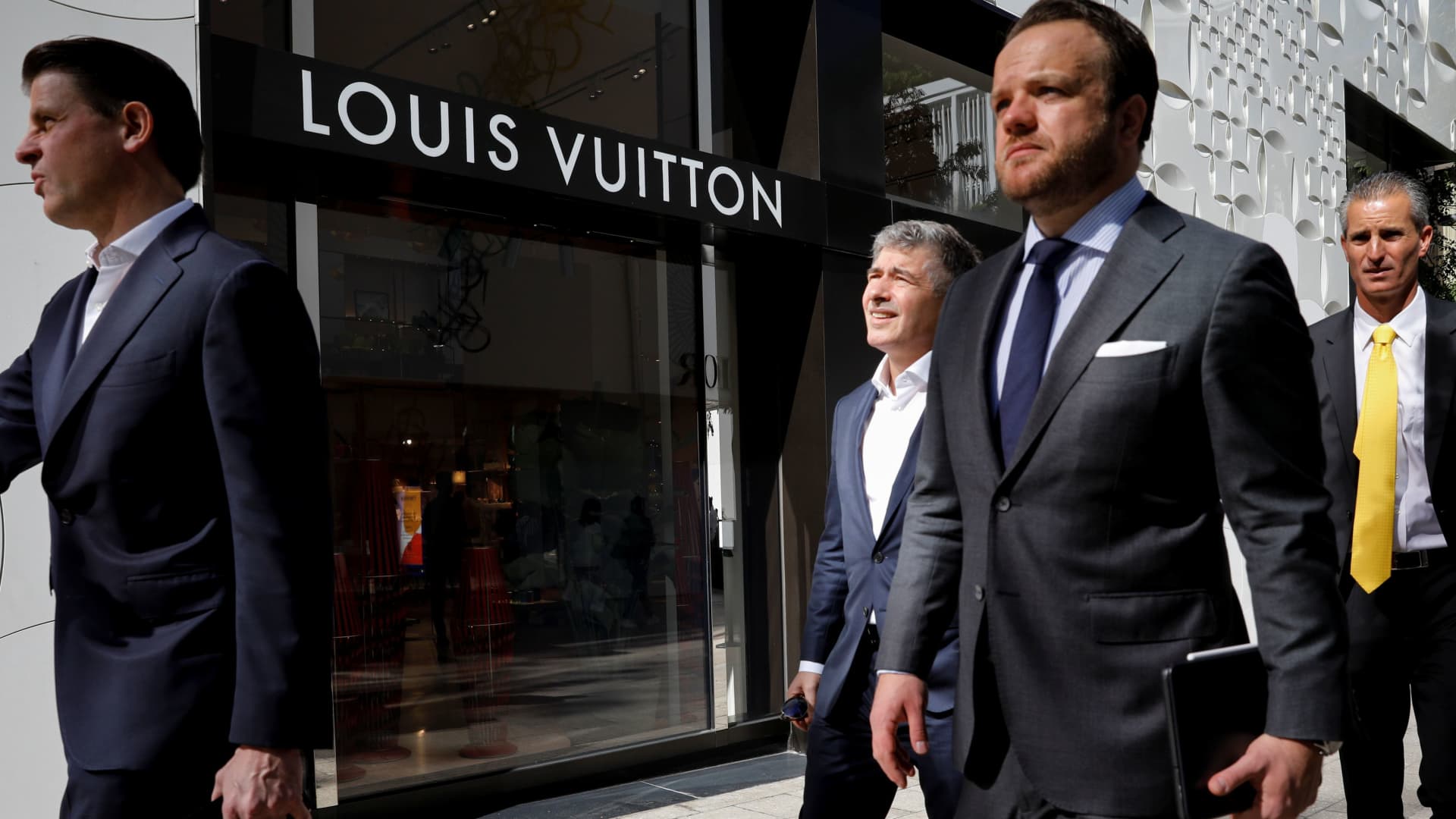Luxury behemoth LVMH on Tuesday reported a surprising drop in U.S. sales in the second quarter, as its chief financial officer said “aspirational customers are not shopping as much as they used to.”
LVMH’s U.S. sales slid 1% in the second quarter from the prior-year period. The disappointing results in the U.S. market came after Cartier owner Richemont earlier this month reported a 4% decline in U.S. sales. Richemont shares fell 10% on the news, pressuring other luxury stocks throughout the week as analysts braced for a potential U.S. luxury slowdown.
During the LVMH earnings call Tuesday, CFO Jean-Jacques Guiony said sales dropped in the U.S. as aspirational consumers no longer spent on entry-level products. While he said he couldn’t explain the exact reason for the drop, he said fading stimulus payments after COVID could have contributed.
“If we assume that that group was benefitting from subsidies during COVID, those come to an end at some point,” he said.
Guiony said high-priced goods at LVMH’s most expensive brands are holding up well in the U.S., presumably due to wealthier shoppers who are less sensitive to inflation, student debt and the economy. The hardest hit segment in the U.S. was wine and spirits — especially cognac. LVMH said it has struggled with inventory issues during and after the pandemic that have made pricing and supply hard to control.
The slowdown also came as Americans vacationed in Europe and bought luxury goods in Paris, Rome or London instead of the U.S., Guiony said. LVMH’s sales in Europe increased 18% in the second quarter, and Guiony said tourists accounted for nearly half of that growth.
LVMH reported a similar shift in spending last year, when Americans returned to Europe en masse, partially cannibalizing sales in the U.S.
China offered a major contrast from the U.S. Overall, LVMH reported sales rose 17% in the quarter, helped by a 34% increase in Asia excluding Japan.
Guiony said that despite signs the broader Chinese economy is slowing, luxury spending there is “strong” after lockdowns were lifted late last year. The company’s Bulgari jewelry brand, which performs well in Asia, had a solid quarter, while Tiffany, which is more reliant on the U.S., was weaker.
He said that while a large share of Chinese luxury purchases used to come in Europe, they are now largely in China and Japan.
“Japanese prices fell quite a lot during the year” due to the falling yen, he said. “There are big price differences between China and Japan. But we will see prices in Japan start to rise.”
